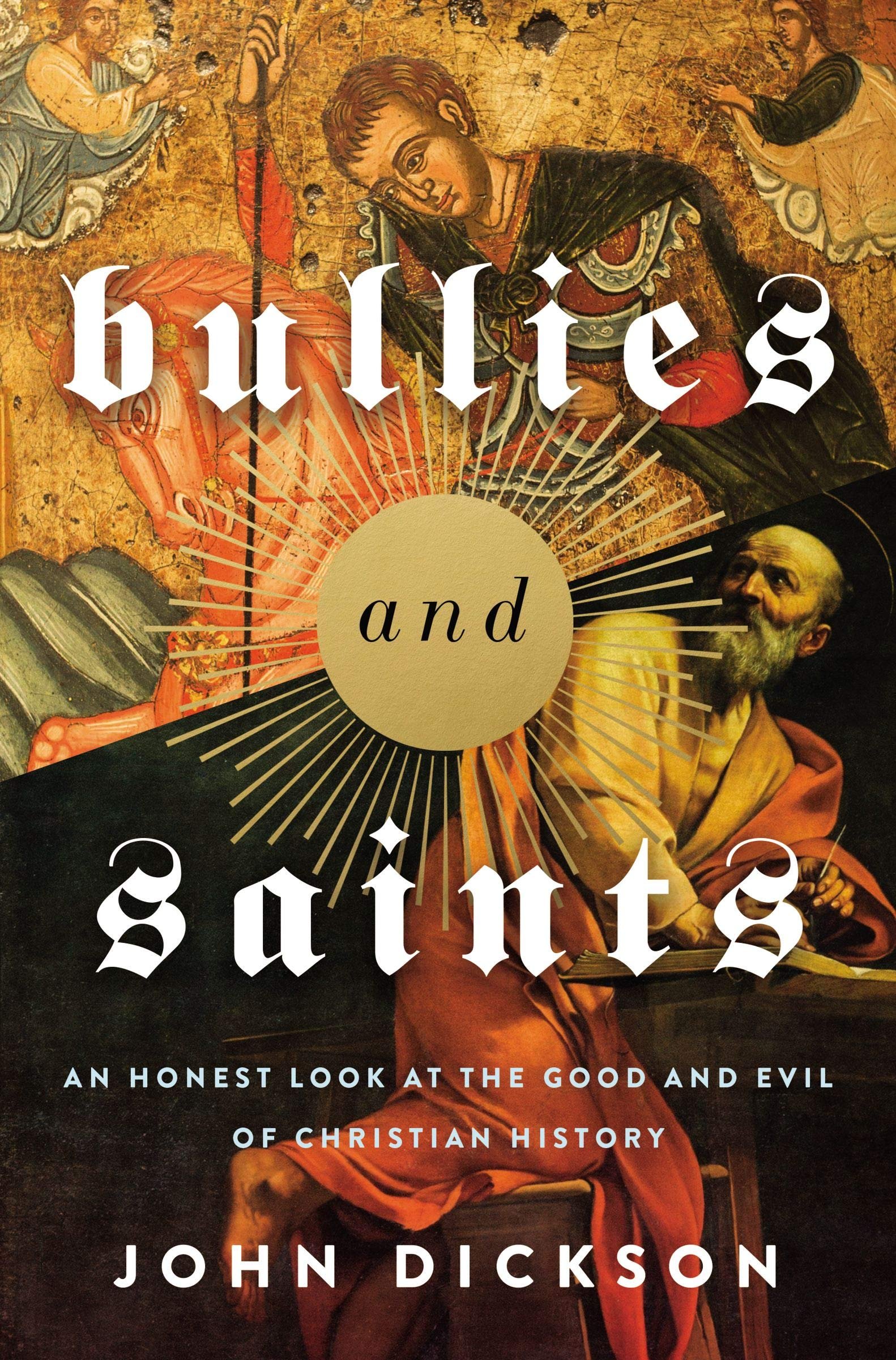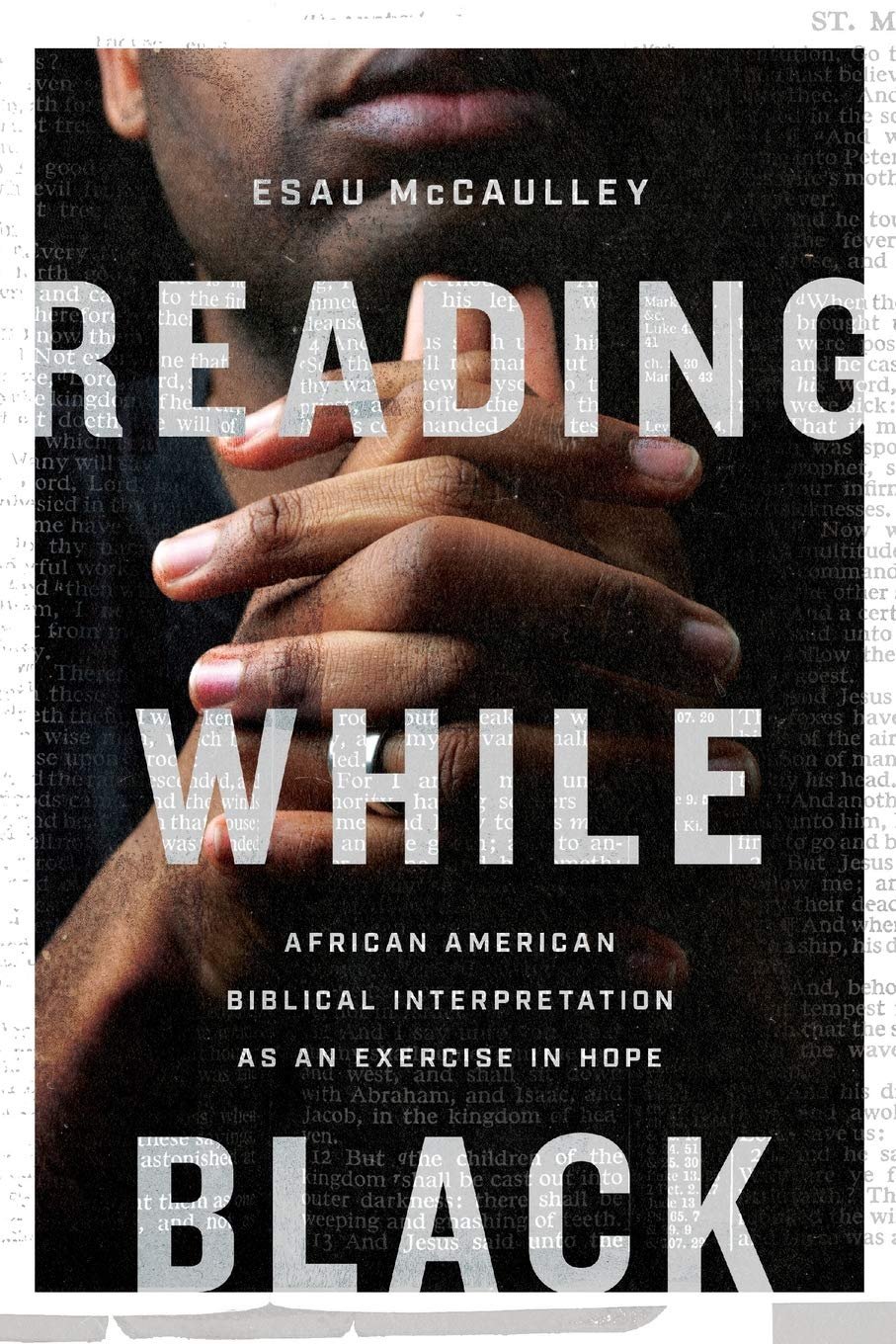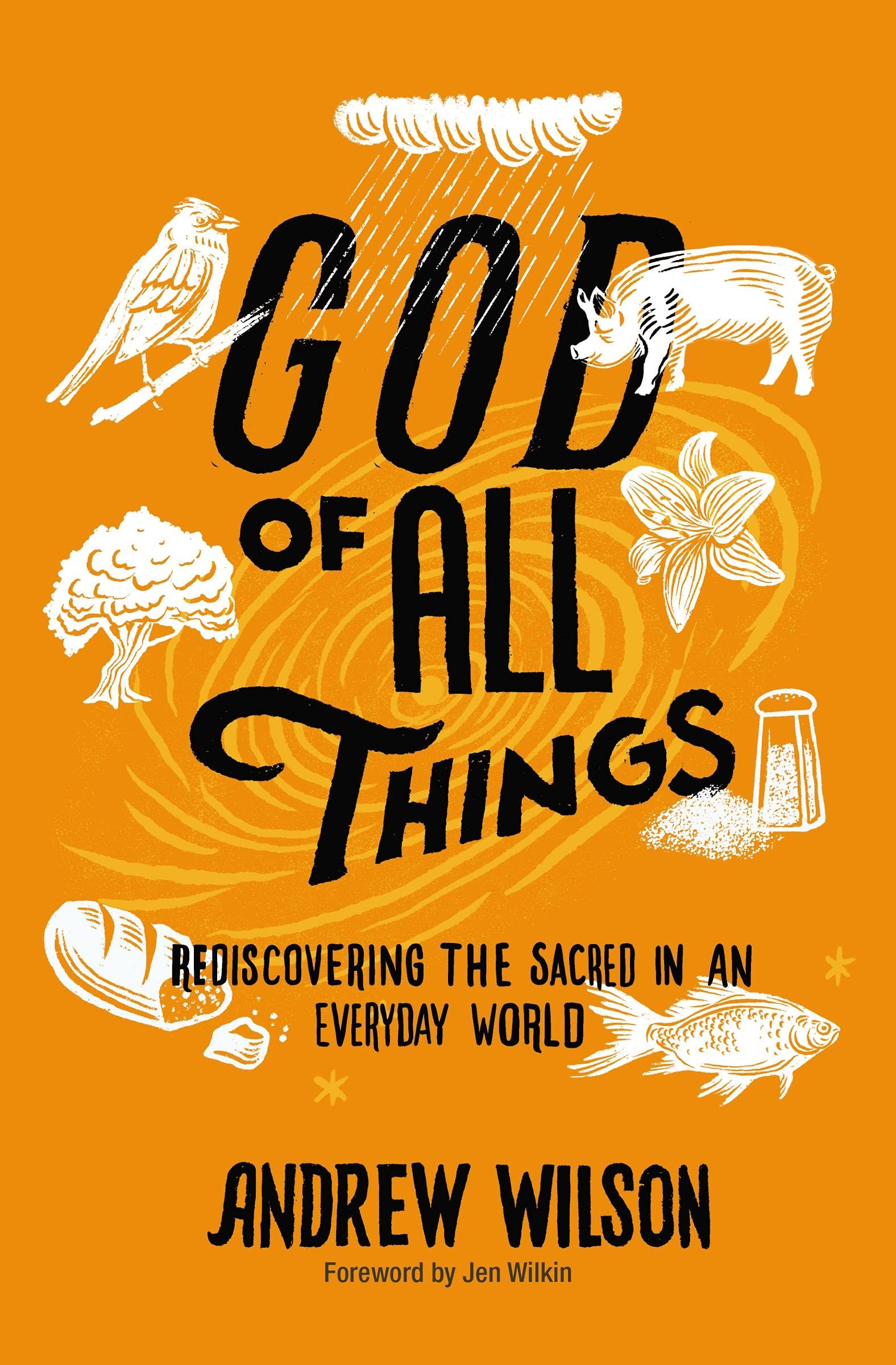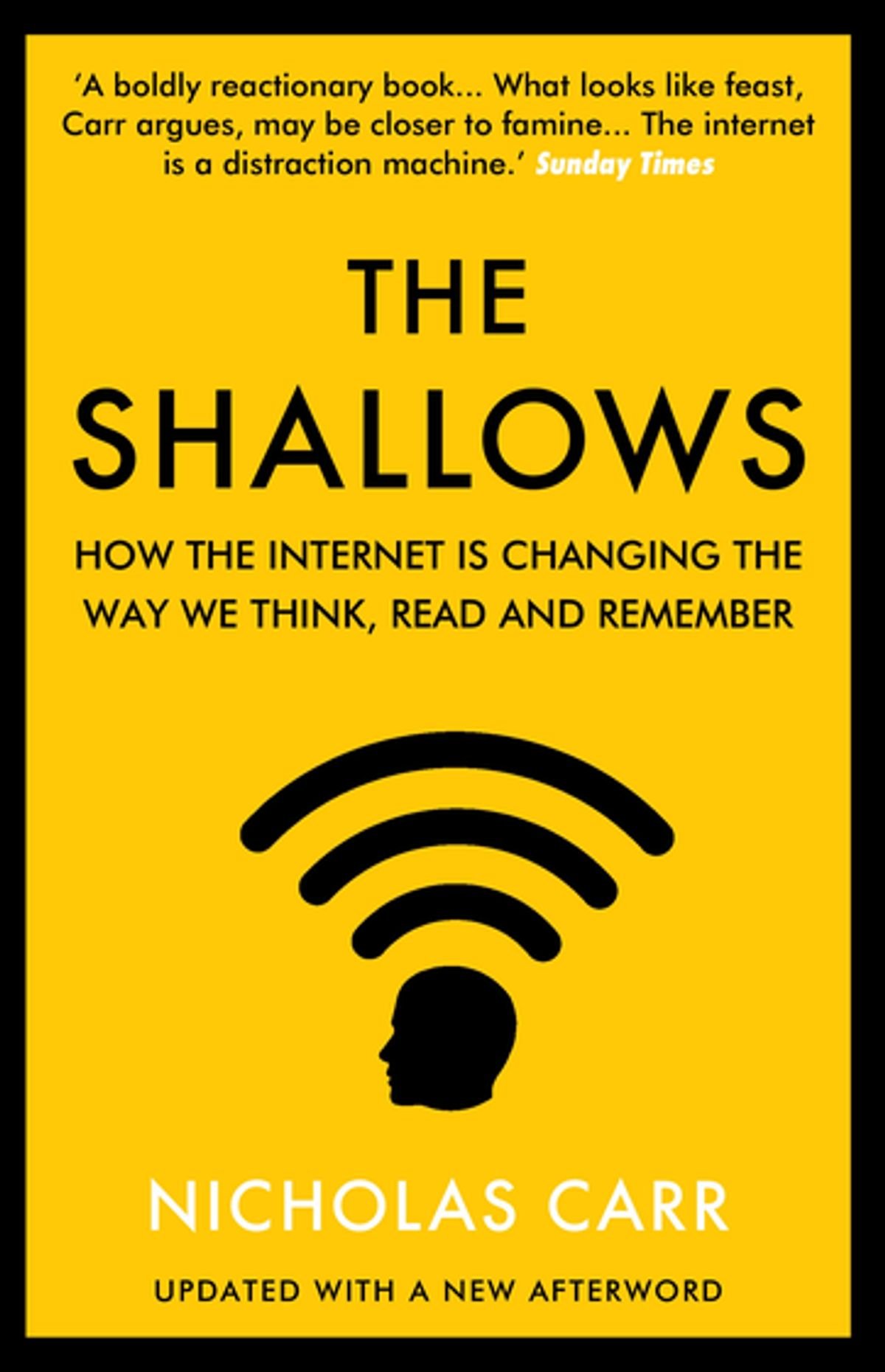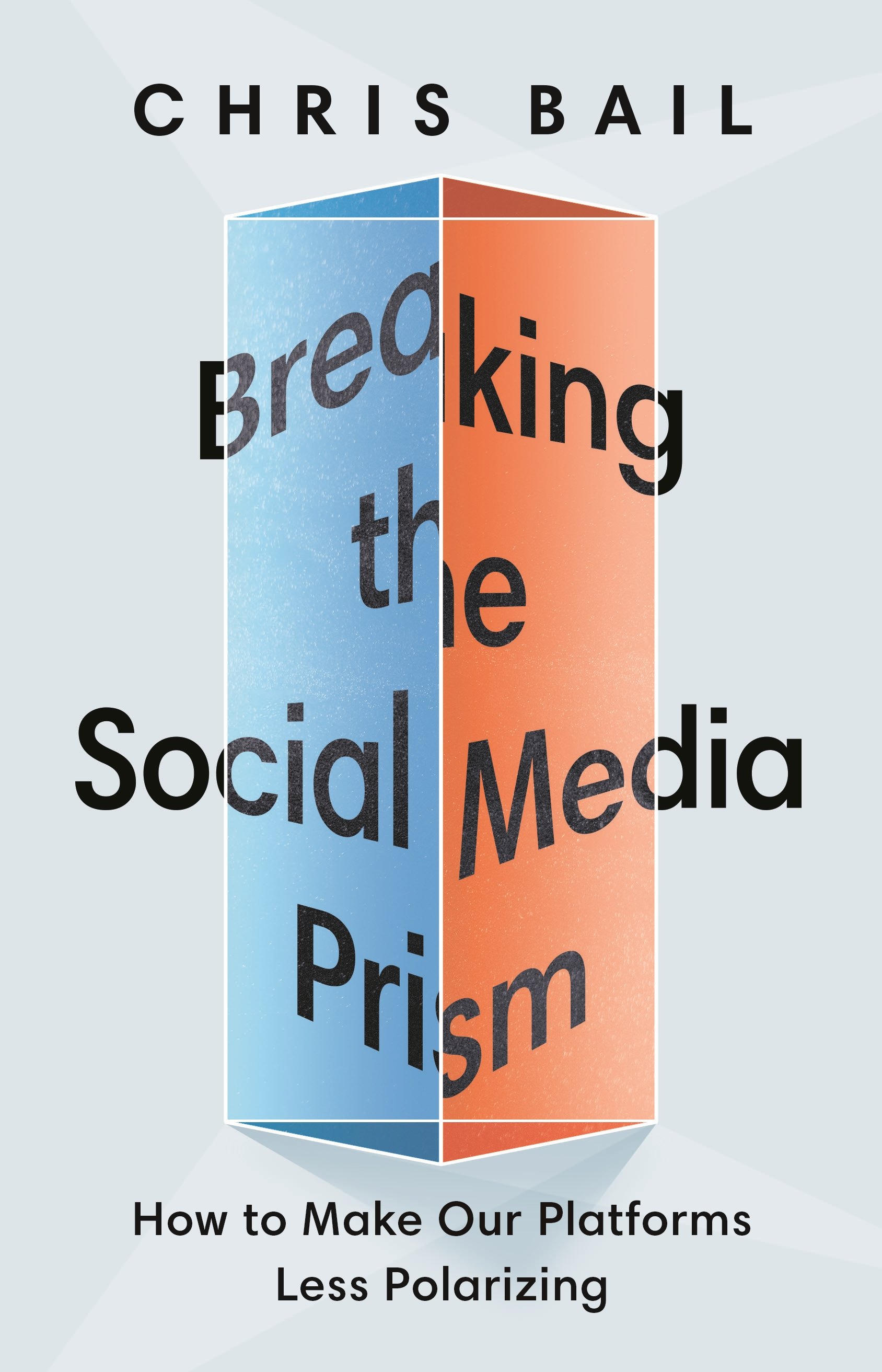Jeff here -
Well, this started as a recommended book list for Christmas shopping - then I got COVID and fell behind, so we’re revising this from a Christmas shopping list to a “how to spend your Amazon gift card” list. Here are some of the best books I read in 2021, that I commend to you for your own reading and enjoyment. And there are 12, so let’s call this “The 12 Books of Christmas!” -
Bullies and Saints - John Dickson
Every group of people and every nation has to wrestle with the past. In this wrestling, it can be easy to trend towards an “all good” or “all bad” viewpoint. It’s hard to find authors and commentators who present a balanced, reasonable view. This is true with the church as well! You may remember the late author Christopher Hitchens, who claimed that “religion poisons everything.” On the other hand, defenders of the church sometimes fail to acknowledge the harm done at certain points by God’s people.
John Dickson steps into this breach with wisdom, clarity and winsomeness. Dickson, a Christian, is not afraid to talk about the church’s sins - discussing the Crusades, forced conversions, the Inquisition, and even the terrible abuse crisis in the modern church. At the same time, Dickson pushes back at some of the more unfair criticism (the section on the Inquisition is especially interesting) and highlights the church at its best - in particular (but not limited to), in the first few centuries after the death and resurrection of Jesus. Dickson refers to the Christians of this era as “Good Losers” and argues that this era lays the groundwork for what is possible for the church.
Dickson is a clear, enjoyable writer who champions the truth with humility. This is now my #1 church history book.
Are people becoming less religious? It depends what you mean by that. David Zahl distinguishes between “Capital R” religion and “lower-case r” religion and argues that, in many ways, people are actually becoming more deeply religious - religious about things other than God. “We may be sleeping in on Sunday morning in greater numbers,” Zahl says, “but we’ve never been more pious.”
In building his case, Zahl gives a helpful definition of religion:
It is what we lean into to tell us we’re okay, that our lives matter, another name for all the ladders we spend our days climbing towards a dream of wholeness… Our religion is that which we rely on not just for meaning or hope but enoughness.
Given this framework, Zahl moves on to show how we are attempting to find this wholeness in so many areas - career, busyness, parenting, politics, romance, and more. Zahl even includes a chapter on “The Seculosity of Jesusland” which includes both a critique and a hopeful vision for the church (Zahl is an Anglican minister). Zahl does all of this with engaging and witty prose dripping with pop culture references.
This book will help you to understand your own disordered longings, considering how Jesus is better than our own “religions” and the “religions” of the world around us.
Reading While Black - Esau McCaulley
Christianity Today’s 2021 Book of the Year, and I understand why. For about six years, the topic of the majority-black church in America has been one of the most helpful topics I have studied, and McCaulley’s work adds an important perspective.
McCaulley stands in a long line of black preachers and authors who navigate away from the twin errors of fundamentalism and liberalism. He offers a path of faithful interpretation that is informed (not controlled) by his cultural perspective. McCaulley argues that this perspective (among others) is critical:
What I have in mind then is a unified mission in which our varied cultures turn to the text in dialogue with one another to discern the mind of Christ. That means in the providence of God, I need Ugandan biblical interpretation, because the experiences of Ugandans mean they are able to bring their unique insights to the conversation. African American exegesis, then, precisely because it is informed by the Black experience, has the potential to be universal when added to the chorus of believers through time and across cultures.
McCaulley faithfully brings his lens to Biblical topics like how to apply Romans 13, politics, the history of slavery and more. As the church continues to wrestle with these topics, this book is a welcome and helpful conversation partner.
The Message of 1 Timothy & Titus - John Stott
It’s obviously a good idea to simply read the Bible on our own, but it is also good to remember that Bible study is best done in community. Part of the community we are privileged to benefit from are saints that have gone before us and have studied the Scriptures extensively. For those who haven’t read or listened to John Stott (and you can hear him here, and I highly recommend it), Stott was one of the best preachers of the 20th century, and he was a master at faithfully challenging and encouraging all hearers, whether they leaned “conservative” or “liberal.”
Stott died in 2011, but left behind volumes of accessible and faithful commentaries like this one. Why not consider a deeper dive on one or more books of the Bible in 2022, and let Stott be your guide?
What God has to Say about Our Bodies - Sam Allberry
A theology book that is dripping with relevance and hope - Allberry discusses how God has made our bodies good, the fallenness we all experience, and points the way to a redemption that awaits when Jesus returns and makes all things new.
This book is especially important on two fronts. First, we are living in a time where bodily presence is becoming more and more devalued (yes, I saw a Meta commercial as I was writing this). Second, there is great confusion over what our bodies are for, what our genders are for, and how we are to use our bodies to honor God. Allberry addresses these issues and more. He reminds us that “the body is not incidental to who we are.” Well-written and drawing on a great breadth of other writers.
You are Not Your Own - Alan Noble
Noble, a fellow Presbyterian, has a keen eye for discerning the many difficulties of living in the modern world. The book is based on the Heidelberg Catechism, question 1, which asks, “What is your only comfort in life and death?” The answer, as we have recited often at Meadowcroft church services, begins with “That I am not my own, but belong with body and soul, both in life and in death, to my faithful Savior Jesus Christ.”
Noble deals with one of the central lies of modernity - that we are actually are our own and belong to ourselves. He shows why this is bad news and shows how the modern world is uniquely structured to lead us toward hopelessness. He then identifies some of the ways we try to deal with living in this way, memorably comparing humans to lions roaming around a cage at the zoo.
While Noble does not offer easy answers, he does begin to sketch what it looks like for faithful Christians to resist - in the areas of economics, politics, and technology, for starters.
Noble is one of my favorite writes because he writes truthfully, beautifully, and graciously. His writing will help you to understand yourself, understand the culture, and love your neighbor more deeply.
God of All Things - Andrew Wilson
This was such a cool book! Wilson, a pastor in the United Kingdom, takes everyday aspects of God’s creation and shows how they proclaim the glory of God as revealed in Scripture. It’s a really unique reflection with short, punchy chapters. Among other things, Wilson draws our attention to dust, tools, horns, and pigs - his reflection on pigs is worth quoting at length - after talking about how “unclean” pigs are, he writes:
On the other hand, they taste sensational. Pork belly, pancetta, honey-glazed gammon, prosciutto, nduja sausage, crackling, ham, barbecued ribs, salami, trotters, hog roast: it is hard to believe that such a wide range of cuts and flavors could come from the same animal…
Bizarrely, if you were to create a smell spectrum, from the vilest stench to the most enticing aroma, pigs would find themselves at both ends of it, depending on whether it was before or after they died…
Now there are upward of two billion of us: formerly unclean, cloven-footed, cud-chewing gentiles who have been washed from our dirt and purified from our sins and now offer ourselves as fragrant offerings to the God who makes common things clean. It is the pig paradox again. Death—in our case, the death of Christ—has taken that which was filthy and untouchable, and made us aromatic and delightful by the grace of God.
Yep - next time you are enjoying bacon, remember Wilson’s words and remember the transformative goodness of God!
Talking Back to Purity Culture - Rachel Joy Welcher
The era of time that I was single and dating almost exactly coincided with the height of the purity culture movement in evangelical America. Do you know who Joshua Harris is? If so, this might be a good book for you to read. Welcher does a wonderful job showing what was good and what was bad with the purity culture movement of about 20 years ago.
Rather than just point out what was wrong, however, Welcher urges her readers to become and remain faithful to a Biblical ethic of sexuality - showing its goodness, truth and beauty. I really enjoyed this book - note - Catherine told me 10 times to read this book, and as usual I should have listened to her the first time.
God Against the Revolution - Gregg L. Frazer
This one is a little more of a deep dive for the history people - but well worth it if you’re interested. Our understanding of the American Revolution often leaves out an important group - loyalists - and, specifically, their clergy who used the Bible to argue against the revolution (while the Patriot pastors often used the Bible to argue for it).
You can judge the case for yourself, but what I found the most interesting (and relevant) was what the loyalist clergy went through at the hands of Patriots (even before the revolution) - they were harassed, their writings were burned, and they often lost their homes and livelihood.
This book is another reminder that history is typically more complicated than we think it is, and that part of understanding our history (both in the church and otherwise) involves hearing from voices that are easily forgotten. See a further review of this book over at Christianity Today.
—————————————————————————————————————————
The last three books aren’t specifically Christian, but can help us understand how to live as Christians in our current cultural moment:
This is the kind of book you don’t really want to read, because you know you are going to feel worse about some of your habits. Do we really want to know what the Internet is doing to us?
Take my advice and consider reading through this (surprisingly) ten-year old book. This book was recommended by Samuel James, who notes that it’s often easy to get caught up in discussions about Big Tech and what messages are allowed/censored, while we should probably be thinking more deeply about how the medium itself is shaping us.
As the church considers how to deal with a crisis of epistemology (how we know things), this book can help us have a prior understanding of how the internet can form us into a people more prone to misinformation, dubious conspiracy theories, and a lack of deep thinking. While the internet is here to stay, we need to learn how it is shaping us and take steps to be counter-formed.
Breaking the Social Media Prism - Chris Bail
Tim Keller pointed this book out earlier in the year and then wrote a review about it. I’ve become fascinated in the past few years by the formative effect of our social media platforms, and I’ve also been deeply troubled by the polarization I see not just in our country, but among Christians. It doesn’t take a genius to figure out that social media use is contributing to this polarization. I’ll let Bail explain his thesis for himself:
We are addicted to social media not because it provides us with flashy eye candy or endless distractions, but because it helps us do something we humans are hard-wired to do: present different versions of ourselves, observe what other people think of them, and revise our identities accordingly. But instead of a giant mirror that we can use to see our entire society, social media is more like a prism that refracts our identities - leaving us with a distorted understanding of each other, and ourselves. The social media prism fuels status-seeking extremists, mutes moderates who think there is little to be gained by discussing politics on social media, and leaves most of us with profound misgivings about those on the other side, and even the scope of polarization itself.
As Christians weigh their social media use and presence, Bail’s ideas can help us understand how to be a redemptive presence in an increasingly dark corner of our society.
Minds Wide Shut - Gary Saul Morson and Morton Schapiro
I heard about this book on the excellent Gospelbound podcast hosted by Collin Hansen. Morson and Schapiro are deeply involved in higher education, and write with alarm about how fundamentalism is making it more difficult for us to engage in disagreement. The authors are not talking about religious fundamentalism in particular (in fact, they often take a generally positive view of religion) - they are talking about hardened positions of certainty that refuse to listen to or seriously engage with other positions.
Everywhere (fundamentalism) springs up, it leads to radical simplification of complex questions and the inability to learn either from experience or from opposing views. And the habits developed in one field transfer easily to other areas.
As this mindset takes over, we can begin to engage in behavior that leads to harm:
When people adopt extreme theories, they discover dangers that justify extreme actions. That is because such theories teach a way of viewing the world that… reveals only confirming evidence.
Christians will not agree with all of Morson/Schapiro’s analysis (they hold to unbiblical views of sexuality, for instance), but, if we have ears to hear, we’ll be helped in understanding what it means to be salt and light when people seem to be getting angrier and angrier.
If you have read or read any of these, let me know if you’d like to grab some time and talk about them!
